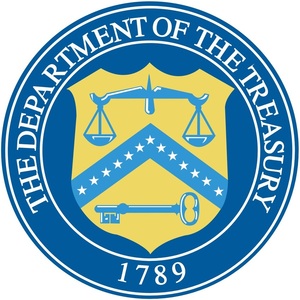Biofuel groups participate in Treasury roundtable on IRA

November 8, 2022
BY Erin Voegele
The Renewable Fuels Association and Growth Energy are among the organizations that participated in a virtual roundtable with the U.S. Department of Treasury on Nov. 7 that focused on implementation of the Inflation Reduction Act.
“The energy provisions in the Inflation Reduction Act represent the most significant federal commitment to low-carbon biofuels since the Renewable Fuel Standard was expanded by Congress in 2007,” said RFA President and CEO Geoff Cooper. “The inclusion of low-carbon fuel tax credits and grant programs in the legislation marked a major victory for the renewable fuels industry. But now it’s time to ensure these provisions are implemented the right way. If implemented correctly, the IRA’s clean energy measures will stimulate unprecedented investment and decarbonization in the ethanol sector. But if the federal government gets implementation wrong, it will be an enormous missed opportunity for ethanol and other renewable fuels to play a leading role in the fight against climate change.”
Advertisement
RFA General Counsel and Vice President of Government Affairs Ed Hubbard offered testimony at the roundtable, stressing the importance of getting lifecycle analysis right and providing flexibility for ethanol producers to submit their individual analyses of carbon intensity (CI).
“As producers invest in technology and process improvements to lower their carbon intensity, the LCA modeling will need to offer flexibility and granularity so producers can benefit from their unique investments in a timely manner,” Hubbard said. “We believe that to accomplish the goals of the legislation, individual biorefineries will need the option to choose individually suited pathways, as opposed to generalized default values.”
Advertisement
Growth Energy CEO Emily Skor also participated in the roundtable. “We’re grateful to be able to participate in this roundtable, and glad to see Treasury recognize how important the biofuels industry will be to securing a clean energy future and ensuring that the IRA realizes its full potential,” she said. “Right now, the biofuels industry is already lowering carbon emissions, reducing our reliance on foreign oil, saving drivers money at the pump, and creating new American jobs. A smartly implemented IRA will allow ethanol producers to do even more and accelerate the nation’s progress toward a net-zero environment.”
In her testimony, Skor urged Treasury to rely on the best available science to calculate greenhouse gas emissions (GHG) through complete and thorough lifecycle analysis, particularly in relation to the clean fuel production tax credit and the tax credit for sustainable aviation fuel (SAF). She also said producers should be allowed to use Argonne National Laboratories’ GREET model to determine lifecycle GHG emissions for the SAF credit and called on the agency to provide flexibility to producers in how they elect to use the clean fuel production tax credit and SAF tax credit.
Related Stories
A group of 28 House members on May 16 sent a letter to President Donald Trump urging his administration to adopt timely, robust Renewable Fuel Standard renewable volume obligations (RVOs) for 2026 and beyond.
Neste and FedEx, the world’s largest express cargo airline, have agreed on the supply of 8,800 metric tons (more than 3 million gallons) of blended Neste MY Sustainable Aviation Fuel to FedEx at Los Angeles International Airport (LAX).
A bill to formally adopt a revenue certainty mechanism to support the production of SAF was introduced in the U.K. Parliament on May 14. The proposed scheme is in the form of a guaranteed strike price.
Delta Air Lines on May 7 announced its strong support for new bipartisan, bicameral legislation that will accelerate the growth of sustainable aviation fuel (SAF) in Michigan. The bill aims to create a SAF tax credit of up to $2 per gallon.
The U.S. EPA on May 14 delivered two RFS rulemakings to the White House OMB, beginning the interagency review process. One rule focuses on RFS RVOs and the other focuses on a partial waiver of the 2024 cellulosic RVO.
Upcoming Events










